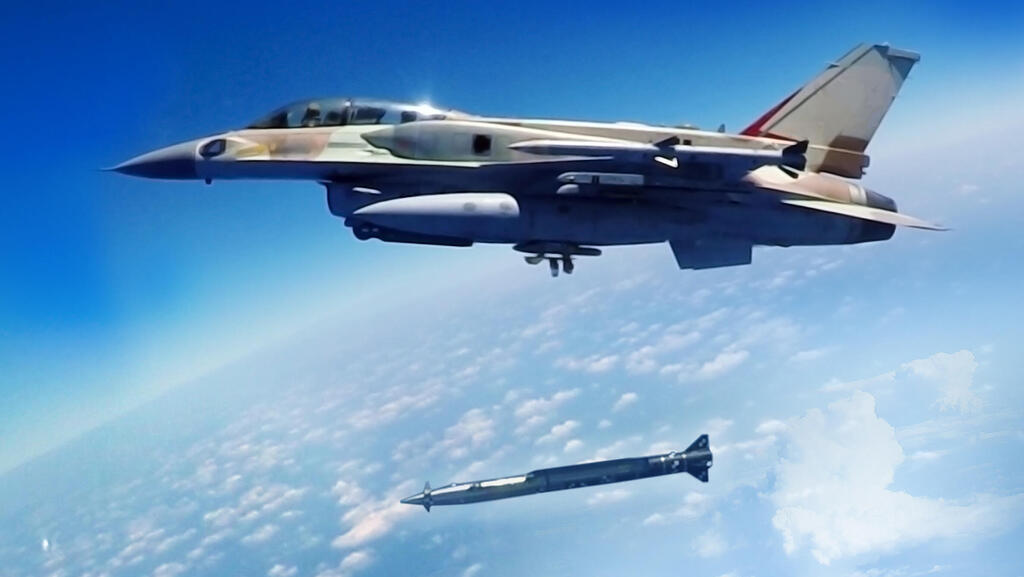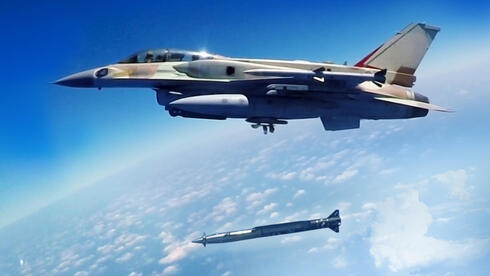
"Airborne laser systems represent a strategic capability. It will cost just a few cents to intercept a UAV"
Bezalel (Butzi) Machlis, CEO and President of Elbit, sees a bright future for the company after it registered record results in the second quarter.
The ongoing global conflicts continue to bolster the financial performance of Elbit Systems, a leading manufacturer of weapons systems and defense equipment. Elbit concluded the second quarter with a revenue increase of nearly 12%, reaching $1.62 billion, and added approximately $1 billion to its total order backlog, bringing it to a record level of $21 billion.
Geographically, Israel led the growth. Elbit Systems' sales in Israel surged by about 80% to $444 million, accounting for approximately 27% of the company’s total quarterly revenue of $1.62 billion. Although Europe had a slightly larger share of sales in the current quarter, Israel contributed the most to Elbit's revenues for the first half of the year, making up 28.2% of the total.
The high sales in Europe are driven by the ongoing Russia-Ukraine war and the resulting increase in defense spending by other countries on the continent. The growth in revenue from Israel is primarily due to the ongoing conflict in Gaza and the country's preparation for the possibility that the campaign could expand to additional arenas. In the past few months alone, the Ministry of Defense has placed orders with Elbit worth NIS 4.5 billion. The main demand is for artillery shells, armor, and precision mortars, many of which will be reflected in the results of the third quarter.
In response to this strong demand and a growing backlog, Elbit is set to open a new production facility in Ramat Beka in the Negev during the fourth quarter of this year. The new factories in this complex will significantly increase production volumes, especially since Elbit will continue operating its complex in Ramat Hasharon, despite initially being scheduled to vacate the site last month. The extension was requested by the Ministry of Defense, causing some tension with the Treasury.
Bezalel (Butzi) Machlis, CEO and President of Elbit, stated in a conversation with Calcalist that the expansion of production capacity, relying on both sites, along with the imminent opening of a drone factory in Modi'in, will allow Elbit to accelerate the fulfillment of its backlog and potentially reach $7 billion in sales—an objective originally set for 2026—by next year.
Elbit is also preparing to ramp up production of 122 mm and 155 mm shells and Iron Sting precision mortar bombs for the IDF, as well as MK 84 air-to-ground bombs, which are mostly imported to Israel from the U.S. Producing these bombs domestically should improve their availability, especially in light of recent disruptions in the U.S. supply of such heavy bombs, due to concerns they might be used extensively in Gaza, posing a risk to civilians.
Related articles:
"Israel is striving to increase its independence in certain armaments, and we are investing significant sums to develop an even more advanced portfolio, which includes air-to-ground munitions, guided missiles, and other means. The war in Gaza has given us a tremendous boost for the development of new technologies," said Machlis.
Elbit's development efforts also involve significant investments in laser technology, in collaboration with the government-owned Rafael Advanced Defense Systems. Rafael is developing the Magen Or laser system, expected to mature next year, while Elbit is working on laser interception capabilities for planes and other aircraft. Machlis did not specify timetables for these advancements but noted that "the greater breakthrough will be in airborne laser systems, which can achieve significant interception ranges despite limitations on the ground due to cloudy conditions and dust above the cloud ceiling. While ground systems are a tactical response, airborne systems represent a strategic capability that will allow us to address a wide range of threats. Instead of spending millions of shekels on intercepting a UAV, we can potentially handle such events for just a few cents."
Machlis also anticipates that the "Ukraine effect" will continue to influence European defense spending in the near future. "Europe understands the threat posed by Russia, and by extension, by the 'axis of evil' countries—Russia, China, North Korea, and Iran. This heightened threat perception has led to increased investment in security, and I expect this trend to continue. European countries are seeking greater independence in weapons production while reducing their reliance on other countries. With factories in Western Europe, we foresee many business opportunities in this region."
Despite Elbit's high growth, order backlog, and the geopolitical tensions that continue to drive demand, its stock has underperformed. Since the start of the year, Elbit's share price has fallen by about 6%, while the Tel Aviv-35 index, in which it is included, has risen by about 8%. Elbit is currently valued at NIS 32.2 billion, making it the sixth-largest company in the index by market capitalization.
Machlis attributes this underperformance primarily to the fact that Elbit is an Israeli company with revenues tied to the IDF and the Israeli Ministry of Defense, leading to backlash from pro-Palestinian and anti-Israel groups worldwide, such as the BDS movement, which has even resorted to violent protests against the company, especially in Britain. "This impacts us in the UK, and not just there. Recently, Canada’s Bank of Nova Scotia, which was a major investor in Elbit, sold a large portion of its holdings, dragging down the stock. I hope this has stopped. We are investing significant effort in communicating with our global investors, and for us, this also represents an opportunity for those who take a long-term view. Our profitability will increase from 8% to 10%. The company’s potential is clear, and I believe that economic principles will ultimately prevail, as they do with any normal stock."
